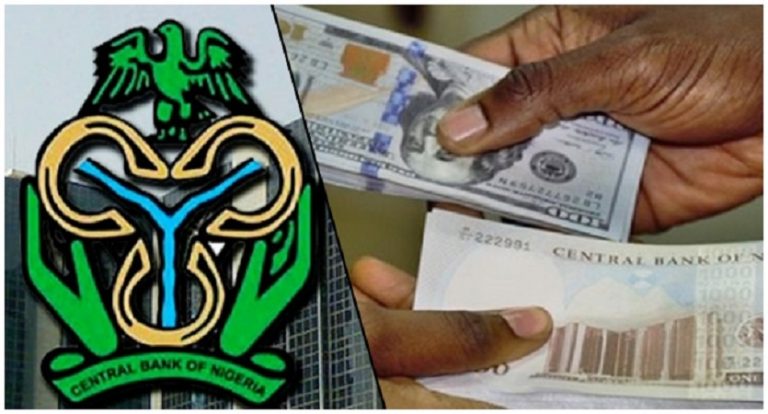
In another move to cool the mounting pressure on the naira, the Central Bank of Nigeria (CBN) has approved the sale of foreign exchange (FX) to eligible Bureau De Change (BDCs).
This decision comes amidst soaring exchange rates, which saw the naira hitting a staggering N1600/$1 on Thursday. The CBN’s latest intervention aims to meet the demand for invisible transactions and curb the volatility in the FX market.
The apex bank, in a circular signed by A. A. Mahdi, Acting Director of Trade and Exchange, announced that $20,000 would be sold to each BDC at a rate of N1,450/$1. This rate represents the lower band of the trading rate at the Nigerian Autonomous Foreign Exchange Market (NAFEM) from the previous trading day.
Register for Tekedia Mini-MBA edition 19 (Feb 9 – May 2, 2026): big discounts for early bird.
Tekedia AI in Business Masterclass opens registrations.
Join Tekedia Capital Syndicate and co-invest in great global startups.
Register for Tekedia AI Lab: From Technical Design to Deployment (next edition begins Jan 24 2026).
The approved rate for BDC sales is intended to stabilize the naira and ensure that FX is available for legitimate transactions.
“Following the ongoing reforms in the foreign exchange market, with the objective of achieving an appropriate market-determined exchange rate for the Naira, the Central Bank of Nigeria (CBN) has observed the continued distortions in the retail end of the market, which is feeding into the parallel market and further widening the exchange rate premium,” the circular read.
To prevent excessive profiteering, the CBN has mandated that BDCs sell FX to eligible end-users at a margin not exceeding 1.5% above the purchase rate from the CBN. This means BDCs can make a maximum profit of N21.75 per dollar sold.
Background of CBN’s FX Interventions
This measure marks the fifth attempt by the CBN to sell FX to BDCs following a prolonged suspension in 2021. The initial ban was lifted earlier this year after the revocation of licenses for over 4,173 BDC operators in February. The sales timeline is as follows:
- February 2023: The CBN sold $20,000 to each BDC at a rate of N1,301/$.
- Second Attempt: The allocation was reduced by 50%, with FX sold at N1,251/$1.
- April 2024: The CBN conducted two sales, first offering $10,000 at N1,101/$1, and then another $10,000 at N1,021/$1.
The current rate of N1,450/$1 is the highest at which the CBN has sold FX to BDCs this year, highlighting the naira’s significant depreciation.
However, the CBN’s strategies, including injections of dollars into the FX market, have struggled to tame market volatility. The disparities between the official and parallel market rates have continued to widen, with the margin reaching up to N200 sometimes.
The current measure, involving the sale of $20,000 to each of the 1,583 approved BDC operators, means an injection of approximately $21.58 million into the retail end of the market.
The Unending FX Market Challenges
The Nigerian FX market has been plagued by significant challenges, including speculative trading, demand-supply mismatches, and economic uncertainties. Efforts by the CBN to manage the market through various interventions have met with limited success, often only providing temporary relief.
Market analysts believe that the consistent pressure on the naira is partly due to structural issues within the Nigerian economy, including dependency on oil revenues, foreign exchange reserves management, and macroeconomic policies. The continuous rise in exchange rates has compounded inflation, particularly affecting food prices, and has put additional strain on businesses and consumers.
While the CBN’s latest move is seen as a critical step toward stabilizing the FX market, experts have argued, for a long-term solution, that more comprehensive economic reforms are needed. These include diversifying the economy, improving local production capacities, and implementing policies that attract foreign investments.
In the immediate term, analysts say the success of this intervention will depend on the ability of the CBN to effectively monitor and regulate the activities of BDCs to prevent abuse and ensure that FX reaches the intended end-users.



